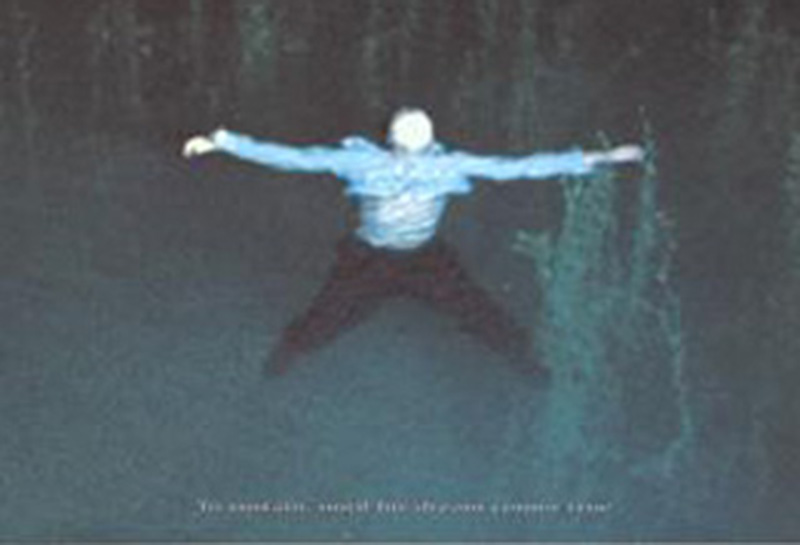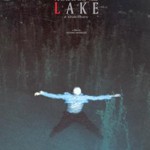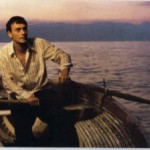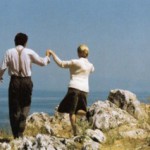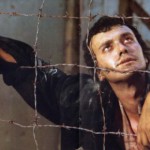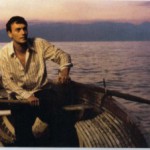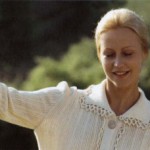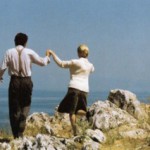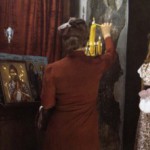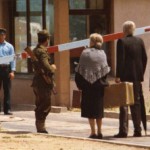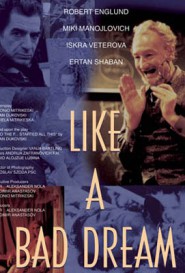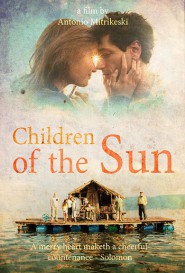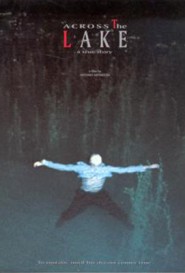
PREKU EZEROTO (ACROSS THE LAKE)
The film ACROSS THE LAKE Is a true story about two people who fall in love with each other and want to be together. He is in Macedonia and she is in Albania. The only thing that separates them is the lake.The borders close. Albania isolates itself from the rest of the world . Konstantin illegally crosses the lake only to collect Elena and take her back. But, treated as a spy, he spends years in Albanian camps. Nobody could believe that a person would go to Albania only because of love. He finds himself in a maze made of human isolation, closed in a foreign country. With the death of Enver Hodza Albania the borders open again. After forty years of torture, Konstantin, together with Elena and his daughter, returns to his place of birth.
A haunting melange of love and paranoia that begins in Stalin-ist Albania in 1950, “Across the Lake “ is a moving tribute to the individual spirit.
It’s evocation of the country’s corrupt, prison-like atmosphere and depiction of one man’s quiet resistance to police state tactics and inept bureaucracy put it several cuts above most other East Euro pics looking back on the Communist period. This first feature by Macedonian born, Polish – schooled helmer Antonio Mitrikeski Shoving strong promise. Pic. Is superbly lenses and edited, and the lead actors, especially Ristanovski as Konstantin , are fine. When not overdone, Mitrikeski’s expressionistic effects-as in his portrayal of the Albanian functionaries – add to the dark mood.
1997 “Across the Lake” The world premiere of this film has been realized during the film festival in Montreal.
1997 “Across the Lake” participated in the category “Reflection of Our Time.”
1997 “Across the Lake” screened at the Toronto Film Festival.
1997 “Across the Lake” received special prize for the human theme at the Saraevo Film Festival.
1997 “Across the Lake” won prize from the audience for the best photography at the Camera Film Festival, “Manaki Brothers” in Bitola, Macedonia.
1997 “Across the Lake” has participated in the official competition at film festivals in Cottbus, Germany; Cairo, Egypt; and others.
The Poetry of Stoicism
Every generation, consciously or not, puts in front of itself a task to evaluate against its own spirituality and sensibility the cultural past of their ancestors. The new generation, even when it is evaluating the stories of its own contemporary life, is in fact evaluating the moral implications of the ideas, the hopes and the traumas of the times when their fathers and grandfathers were fighting for a right to a survival of the aesthetic, ethical and the spiritual values for which they believed were powerful enough to be able to settle the cultural conflicts of that time.
In the Antonio Mitrikeski’s film, Across the Lake, the caution in the usage of the conventional language and the traditional narration is brought to a degree that is hard to sustain from calling it a stylistic constant. And indeed, the obvious striving of the author of Across the Lake to reduce the emotional tensions, to which, if you give them total freedom can easily flood the whole spiritual landscape, can only be defined as his stylistic direction. He is cautious, careful and selective. His suspicion in the perceptive power of the senses of the audience to sense the changes in the world of pictures in which our silent hero had stepped in, forces the author, taken by his skepticism, to demystify the mythical forms of the cathartic suffering, and as a consequence, to make banal the rhetoric of the pathos in the events that are overwhelming and confusing for the audience. Should we, in the case of Antonio’s Mitrikeski’s film, Across the lake, conclude that the poetry of silence is the author’s stylistic determination?
Lets remind ourselves that the film is taking us back to the years when Europe was shaken by the laws of the cold war, the fear of the expansion of communism, and the hostile division of the world. In this atmosphere of uncertainty, a great love is born, in front of which rises the heavy barrier of prohibition, suspicion and cruelties, symbolized in the institution of the country borders. The man from Ohrid, Kostadin, gathers a biblical power, like the old knights, and he crosses the lake so he can meet his big love Elena, whose family lives in Albania. But his love doesn’t bring him pleasure and happiness, instead he is spotted by the authorities in Albania and he is convicted of spying. The terrible shadow of hostility will follow Konstantin even after he has served his sentence. But against all, Kosta will find his beloved woman and will stay with her until a ripe old age. But even after his family returns in Ohrid, the bitterness of his days of suffering and hostility, will never fade away completely.
The subject of love, in the film Across the lake, dominates as a main leading force, as a purpose for existing and as a redeemer of all sufferings. The shadow of suspicion will never fall on the lasting power of the love and the strength of faithfulness. But from the beginning of the film, the subject of love will dramatically be accompanied by the subject of the evil, the punishment and the repression. The stoically faithful and innocent Kostadin, will be mercilessly forced to admit that he is a UDB spy sent to Albania. His love will be contaminated and diminished. The executors of the repression will cover its purity with the principles of the inquisition: to force a false admission which will satisfy the animistic hunger for revengeful torture.
But Mitrikeski, against our expectations, doesn’t oppose the maxim of the evil and the repression to the maxim of divine love. He would rather decide, as we already predicted, to mallow down the gigantic roar of the collision of the two nucleus’s filled up with mythical power, the nucleus of love and the nucleus of evil. That preparedness, rhetorical restraint and silence is seen, at first, in the reductions of the scenes of violence with which, as we know, the standard film production in the last years overwhelms us. Beside the few scenes of hard questionings and tortures in the prison, which are non-ambiguously informing us about the treatment of the main character in the prison, the film doesn’t contain scenes that will put the audience in a dark mood. From the other side, the love scenes are not solved according to the cliches in which the senses in every circumstance, must with great exhibition announce their triumph. Mitrikeski is searching the proof of the strength of Kostantin’s and Elena’s love in the beauty of the emotions. From the beginning of the film when the two young people meet in a church he is letting them feel the magic of their surrounding as a part of the world that is slowly bringing them together.
The mystical glowing of the candles, the eternal watch of the saints from the walls of the church, the silent downpour of the sunlight in which their faces start to look like the faces of the frescoes…becomes for the young people, which had just looked at each other, a new destiny.
The restrain of using words, which in the most of the contemporary productions are trying to hide the emotional emptiness and the shortage of emotions, seems like is adding on to another tendency: to keep silent about (but not to hide them) the erotic impulses of the love of Elena and Kostadin.
They undoubtedly are strengthening the great love and are enriching with a stronger resistance the roots of that love. We can’t call the scene of the first wedding night, when the half naked bodies of the young newlyweds are uniting in a biblical unity, an erotic scene. It doesn’t express the ecstatic moment when after a long postponing of the freedom of the erotic passions, they finally destroy all the barriers and blindly wander through the abyss in which life and death give each other a hand in sign of atonement.
The particularity of the lyricism and the longevity of the emotions of the two young people, pushed to social isolation, is even more convincingly experienced in the hide and seek scene when Elena, with closed eyes like she had for a moment adopted the legend of Euridica, approaches the hill that reveals the view of the lake. Next to Kostadin and Elena stands their daughter who had gathered flowers and who can’t sense the pain of her parents who, spellbound, are looking in the lake. The eternal mother, the giver of life, is forced by human stupidity, spite and malice, to punish her children and to exult in the suffering of the unprotected human beings.
However, Antonio Mitrikeski, is again distancing from the rhetorical effects of the poetic of the big sorrow. About the varying modulation of his directing, from the scenes like the scene of the unhappy family by the bleeding kingdom of the water, we can conclude with certainty the following: He is driven with some strength of the poetry of silence. That particularity of his temperament, doesn’t disqualify him, neither aesthetically nor morally. In contrary. Hasn’t it been said before that we are more human by the one that we leave unsaid that by the one that we tell? Our hopes that the next Antonio Mitrikeski’s film (Across the lake is his feature film debut) will reach the aesthetic goals of the perfection of the silence, that obsession of the modern art, my seem to us exaggerated.
Nevertheless, the skill with which Mitrikeski is controlling the raw outpouring of emotions such as love, loneliness and separation, can encourage those hopes at least to the same degree as the dissenters of the artist in emotional “emptiness” of his asceticism which cause the skeptics to doubt the usefulness of “that kind of art.”
Georgi Vasilevski, KINOPIS 19 ( 10 ). c. 101-105, 1998
PREKU EZEROTO (ACROSS THE LAKE) - 1997
Macedonian- Polish co-production, feature film
Screenplay
Tashko Georgievski, Antonio Mitrikeski
Director
Antonio Mitrikeski
Original music
George Zamfir (France)
Camera
Bartolomay May (Poland)
Cast
Nikola Ristanovski (Macedonian), Agnieszka Wagner (Poland)
Color 35 mm
Leigh
100 min.

